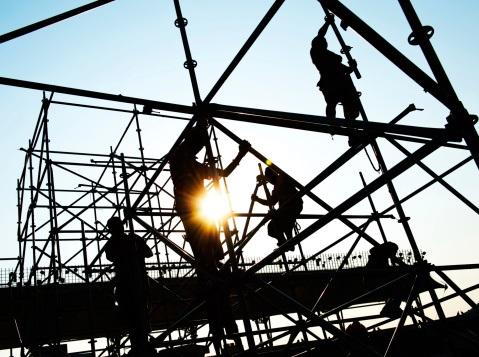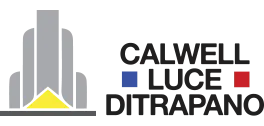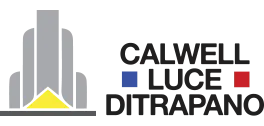
Stuart Calwell is a founding member of
Calwell Luce diTrapano PLLC. Stuart has nearly 40 years of experience practicing law in the state and federal courts of West Virginia and New York, as well as the U.S. Supreme Court. His practice has always focused on helping hardworking West Virginians and his practice areas include asbestos litigation, environmental law, toxic torts, personal injury, medical malpractice and labor law. In addition to being a dedicated jurist, Stuart is an author who has published several articles and papers about personal injury and workplace accidents.
Mr. Calwell has always been a champion for organized labor and recently wrote about the often forgotten army of workers who build our bridges, roads, buildings, railroads, airports, offices and homes, the entirety of our infrastructure. It is titled “Anonymous Monuments” and, as Mr. Calwell knows and describes, the hands of the skilled workers in our country are to be valued and respected. You can read and/or listen to Mr. Calwell recite this powerful essay by clicking on this link:
Anonymous Monuments
"Look around and what do you see? Buildings, bridges, roads, railroads, airports, your office, your home and all that is there, we see every day, we use all that is there every day, and we are secure, without thinking, that all we see will be here for us because, it seems, all that we see has always been. How nice to feel the cool flow of air conditioned air in summer; how nice to be warm in winter; how pleasant to speed across the arc of a bridge on our way to a building where we work, a mall where we shop, a school where our children attend; how nice it all is. And all that we see are monuments, if you will, to some past, enormous endeavor. These monuments provide us convenience and pleasure, and indeed support our lives, and our survival. But where did these monuments come from? How did they get here? Who transformed the idea of a building into a building, the idea of a bridge into a bridge, the idea of a smooth ribbon of highway into a highway, and who took the idea of electricity and transformed it into a massive power plant with towers, stacks and tentacles of wire reaching every building, house and school? Oil, natural gas, and coal were discovered. But for all that was discovered, who pulled and dug these resources from the earth for our use and pleasure? All of this, these monuments, that we see, use, and take for granted, are there because of the hands of workers. It was, and is, the workers, the men and women, who brought the ideas of these monuments and discoveries to life. Without these hands, ideas are just ideas. Buildings are never built, coal, oil and gas are never recovered, bridges never span the abyss, roads never built, electricity never generated, and, in short, without the hands of a worker, all that we depend on and take for granted, would not be here. These hands belong to a seeming invisible army of workers always ready to come to the call; they build, they construct, they repair no matter if the call is in the dead of night, in the freeze of winter, or in the swelter of summer. And then, as is their lot, after driving the last nail, after making the final weld, after filling in the last ditch, after smoothing the last yard of concrete, they recede from sight. Behind, they leave all that we see, use, and depend on; these unsigned, anonymous monuments to their labor. But these are not temporary hands; their work is permanent work, for these monuments demand constant attention. Though one may be repaired, another built, behind each is an endless line of all that we see, need, and use. This shadow army is a permanent army, always on call to wage the permanent battle to maintain, build, and provide for our needs and to assure us that all that we see and depend on will always be here.
There is no cemetery for the countless early and untimely deaths of these veterans of a battle we constantly wage to bring about the construction of and production of all that we need for our convenience and pleasure and, indeed, our survival; there is no medal awarded for the sacrifice of those who built and build our world; no official recognition for their wounds: aching knees, elbows and hands, lungs destroyed by coal dust, asbestos, fumes and chemicals; hands crippled from the tools of construction; ears deaf from the noise of building and producing all that we see and need. No, this army of builders and workers is invisible. They’re in our midst, but we do not see them, for they live in the shadows of our needs. And then, when our needs demand, we call them up from the shadows, and when our needs are satisfied, and the work is done, the shadow descends, and they’re gone from our sight. They are here today and gone tomorrow, but they are with us, and we owe them. The monuments to their work, skill, and sacrifice are all around us, unsigned, and anonymous and without which there is nothing before us but wilderness.
And what of these anonymous monuments, these steel and concrete icons marking the familiarity of our world, our convenience, our pleasure and our economic success, what is their fate? Do they crumble in the face of time and our constant use? These anonymous monuments are not pyramids, standing mute and immobile in some ancient landscape; they are, unlike a pyramid, vibrant, alive, if you will, providing all that we need, depend on, and require. Like all living things they require care, attention and recognition of their vibrancy. And when, metaphorically, these monuments around us die, we have come to expect a new generation of monuments to appear, replacing the old, for our needs, for our convenience, for our pleasure and for our economic success. But, for all our expectations, where do we turn? Who will meet our expectations? Who will not only keep our anonymous monuments alive and useful, but who will build and construct and create their progeny: our new anonymous monuments of the future? Do we, when it suits us, simply issue the call to our shadow army? But will the army be there? Has its ranks been depleted by age, death, and lack of work? Or, have we unwittingly depleted their ranks by the discouraging advice to the young, new would be recruits, who, perhaps, would aspire to developing the skilled hands needed to construct and build that which we need, by counseling them to forget the tools and skills of construction? Often, instead, we say, in so many words: “you should go to college and better yourself”; or, “you should design efficient software to deliver materials to the job site”. But, one might observe, once the materials efficiently arrive, there is no App or computer that will put it all together and create another monument. We need and always will need skilled hands. We must train them, value them, and respect them. If we do, when the call to work is sounded, they will be there. From the darkest shadows, they will come. They always have. Simply make the call, our monuments will be saved, new ones built, and all that we see, use and need, will be there. But, think not, that all you need to do is call when an inconvenience appears or a need for something appears. These skilled hands that we call from the shadows, often without thought, are of flesh and bone. They embrace families, and, there in the shadows, insecurity reigns under the umbrella of doubt: will there be a paycheck tomorrow? We cannot let this shadow army disband. We cannot let it die. There is work for the skilled hands of this army now, and work for these hands every day of every year. Our monuments are crumbling, and new monuments are needed now. To save this army, issue the call to local, state, and federal governments. Demand the rebuilding of America. Let the sunshine in the shadows. Let it be known our monuments are not anonymous. Let it be known our monuments are signed by the skilled hands of labor and henceforth always will be." © 2016 W. Stuart Calwell, Jr. All Rights Reserved.
For more information about recovering compensation for damage to your health, property or community, call Calwell Luce diTrapano PLLC at 304.400.6558 or contact our West Virginia law firm online to schedule an appointment.
 Stuart Calwell is a founding member of Calwell Luce diTrapano PLLC. Stuart has nearly 40 years of experience practicing law in the state and federal courts of West Virginia and New York, as well as the U.S. Supreme Court. His practice has always focused on helping hardworking West Virginians and his practice areas include asbestos litigation, environmental law, toxic torts, personal injury, medical malpractice and labor law. In addition to being a dedicated jurist, Stuart is an author who has published several articles and papers about personal injury and workplace accidents.
Mr. Calwell has always been a champion for organized labor and recently wrote about the often forgotten army of workers who build our bridges, roads, buildings, railroads, airports, offices and homes, the entirety of our infrastructure. It is titled “Anonymous Monuments” and, as Mr. Calwell knows and describes, the hands of the skilled workers in our country are to be valued and respected. You can read and/or listen to Mr. Calwell recite this powerful essay by clicking on this link:
Stuart Calwell is a founding member of Calwell Luce diTrapano PLLC. Stuart has nearly 40 years of experience practicing law in the state and federal courts of West Virginia and New York, as well as the U.S. Supreme Court. His practice has always focused on helping hardworking West Virginians and his practice areas include asbestos litigation, environmental law, toxic torts, personal injury, medical malpractice and labor law. In addition to being a dedicated jurist, Stuart is an author who has published several articles and papers about personal injury and workplace accidents.
Mr. Calwell has always been a champion for organized labor and recently wrote about the often forgotten army of workers who build our bridges, roads, buildings, railroads, airports, offices and homes, the entirety of our infrastructure. It is titled “Anonymous Monuments” and, as Mr. Calwell knows and describes, the hands of the skilled workers in our country are to be valued and respected. You can read and/or listen to Mr. Calwell recite this powerful essay by clicking on this link:



